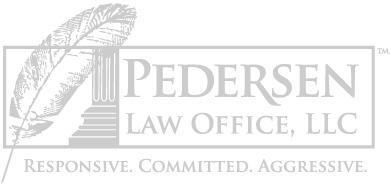Understanding Probate Accounting
May 31, 2023

INVENTORY OF ESTATE
The inventory is an overview of the fair market value of all assets owned by your loved one as of the day they passed away. This will include all financial accounts, vehicles, real estate, and any other assets your loved one owned. Money owed to and by the estate must also be listed. The inventory will not include assets set up to avoid the probate process. This includes retirement accounts or life insurance with beneficiary designation, bank accounts with payable upon death designation or assets in a revocable trust. The inventory needs to show all assets owned by the estate before anything is transferred or sold and before any bills or claims are paid. A copy of the inventory should be given to all heirs and beneficiaries.
FINANCIAL RECORDS
It is important to keep detailed records of all transactions. During the probate process funds may come into the estate, whether from investment accounts, money owed or the selling of assets. Bills will also need to be paid, whether they are for maintaining assets or claims filed against the estate by creditors. An estate receipt is required for all disbursements made whether payment was made to a creditor or beneficiary. Once the receipt is signed and returned, it should be filed with the court to show the claim has been satisfied. As personal representative, opening a bank account for the estate will help keep accurate financial records of all income and expenses of the estate. Statements of the estate bank account will be helpful when drafting the final estate account.
FINAL ESTATE ACCOUNT
The final account of an estate is an overview of the financial changes that have occurred since the inventory was filed. It will include the information from the inventory, all assets sold, funds received, and expenses paid, including any distributions made to heirs or beneficiaries. The final account should be completed after all funds have been received and all expenses have been paid for the estate, including tax returns, if necessary. A copy of the final account should be given to all heirs and beneficiaries. If an heir or beneficiary believes a transaction was improper or inaccurate, they may file an objection to the final accounting. If you follow the wishes of your loved one according to their will, report and complete all transactions accurately; there should be no reason for concern.
FREE CONSULTATIONS
Losing a loved one is never easy. Dealing with the loss while trying to figure out what must be taken care of can be overwhelming. At Pedersen Law Office, LLC we offer a free consultation to help discuss your specific situation, provide guidance, and help you through the entire probate process. Our law office serves the communities of Appleton, Neenah, Menasha, Oshkosh, Green Bay and their surrounding areas.


